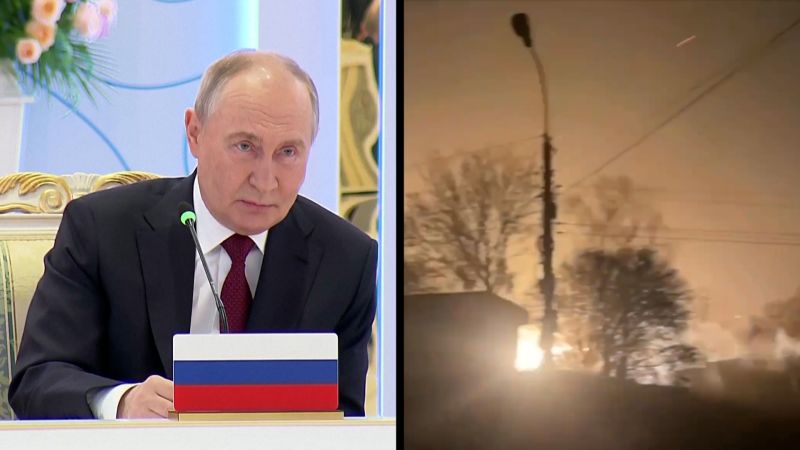
Putin Blames US-Made Missiles for Russia’s Swift Assault on Ukraine
The recent overnight attack by Russia on Ukraine has sparked global concern and condemnation. According to reports, the strikes involved the use of US-made missiles, adding a layer of complexity to the already volatile situation in the region. This development reflects a growing trend of proxy conflicts and power plays among international players, with Ukraine caught in the middle of a geopolitical tug-of-war.
The decision to employ US-made missiles in the attack raises questions about the flow of arms in the global arms trade. The use of such advanced weaponry highlights the sophisticated capabilities of modern warfare and the willingness of parties to escalate conflicts using cutting-edge technology. It also underscores the challenges of regulating the transfer of arms and ensuring that weapons do not end up in the wrong hands.
Moreover, the involvement of US-made missiles in the attack puts the United States in a sensitive position. While the US maintains its support for Ukraine and condemns Russian aggression, the use of American weapons in the conflict creates a diplomatic dilemma. It underscores the complexities of international relations and the interconnectedness of the global arms trade, where weapons manufactured in one country can end up being used against its allies.
The overnight attack on Ukraine also underscores the urgent need for a peaceful resolution to the ongoing conflict in the region. The use of military force only serves to escalate tensions and deepen the humanitarian crisis in Ukraine. Diplomatic efforts and dialogue must be prioritized to de-escalate the situation and prevent further bloodshed.
Furthermore, the international community must come together to condemn the attack on Ukraine and hold Russia accountable for its actions. Sanctions and other diplomatic measures should be leveraged to pressure Russia to cease its aggression and respect Ukraine’s sovereignty. It is crucial for world leaders to stand united in upholding international law and ensuring the protection of vulnerable populations caught in the crossfire of geopolitical conflicts.
In conclusion, the overnight attack on Ukraine with US-made missiles represents a dangerous escalation in the ongoing conflict in the region. It highlights the complex web of international relations, the challenges of arms control, and the imperative of prioritizing diplomacy over military action. The incident calls for a coordinated response from the international community to de-escalate tensions, hold aggressors accountable, and work towards a peaceful resolution to the crisis in Ukraine.
